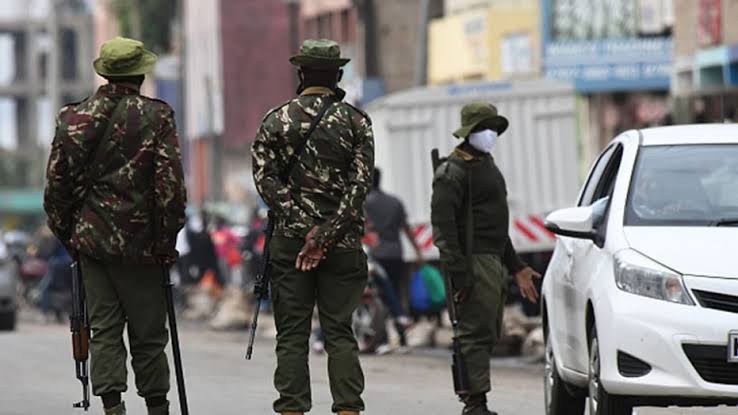NAIROBI, Kenya, Mar 26 – During his address to the nation on Friday, President Uhuru Kenyatta revealed that the positivity rate of the COVID-19 disease is at its highest since the pandemic struck the country in March 2020.
He said the Ministry of Health statistics painted a grim picture, while warning that the increased cases had caused an unparalleled stress on the country’s health system.
As a result, several containment measures have been tightened including a cessation of movement in five counties; Nairobi, Kajiado, Kiambu, Machakos and Nakuru, which were described as, “disease infected areas” The movement will be limited for people within the 5 Counties.
The raft of measures that are aimed at ‘limiting human interaction’ in order to combat the invisible enemy. As a result, those in the criminal justice system are expected to change their modus operandi.
“The Judiciary, Law Enforcement, Remand and Correctional Facilities, the Director of Public Prosecutions, and other players and stakeholders in the criminal justice and civil justice systems are to take immediate action to eliminate non-essential physical contact or situations within their areas of mandate that may lead to crowding or propagation of the Disease,” said the president.
-Law enforcement-
The COVID-19 taskforce working with the National Police Service (NPS) will now be forced to go back to the drawing board and properly devise rules of how to handle Kenyans violating COVID-19 guidelines.
Those arrested may be fined instead of being detained at remand facilities or police cells in order to avoid a social distancing nightmare in the facilities designed to hold a limited number of people. This way, a possible super spreader phenomenon could be avoided.
Police will equally be required to enforce the law and avoid engaging in ’excesses’ as has been previously witnessed where several officers have been accused and even captured on camera meting violence on innocent Kenyans including children, some of whom lost their lives.
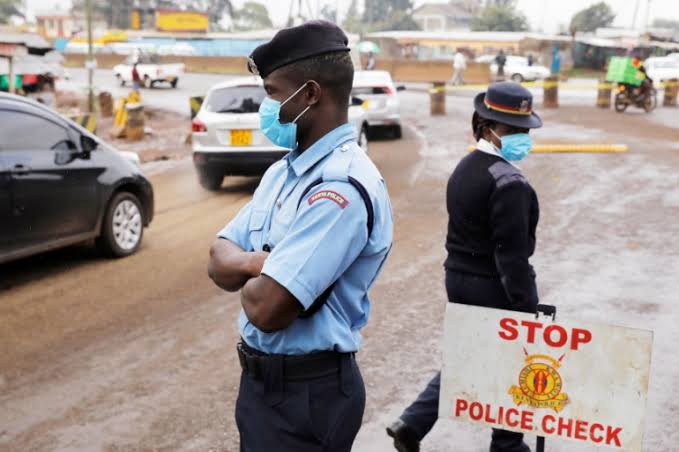
Traffic police will in the coming hours set up roadblocks and barricades across designated points in the five ’infected counties’ to prevent movement of people until the directives are revised by the President.
County Emergency Response Committees are also expected to work closely with law enforcement in implementing the infection prevention control measures.
-Corridors of Justice-
Acting Chief Justice Philomena Mwilu who was also vaccinated on Friday alongside President Kenyatta has been grappling with the increasing cases of COVID-19 infections in the corridors of justice, with several law courts including; the Mavoko Law Courts, Thika Environment and Land Court, the Family Division of the High Court at Mililani Law Court, the Bungoma Law court among many other forced to be closed indefinitely.
At least three judicial staff members have lost their lives as a result of the virus with several others being put in mandatory quarantine.
As a precaution, the National Council on the Administration of Justice may be forced to re-introduce several changes to prevent the spread of the virus such as requiring new arrests and remandees’ cases be heard in police stations except for serious cases.
Courts may also be closed indefinitely with all cases expected again to be heard virtually.
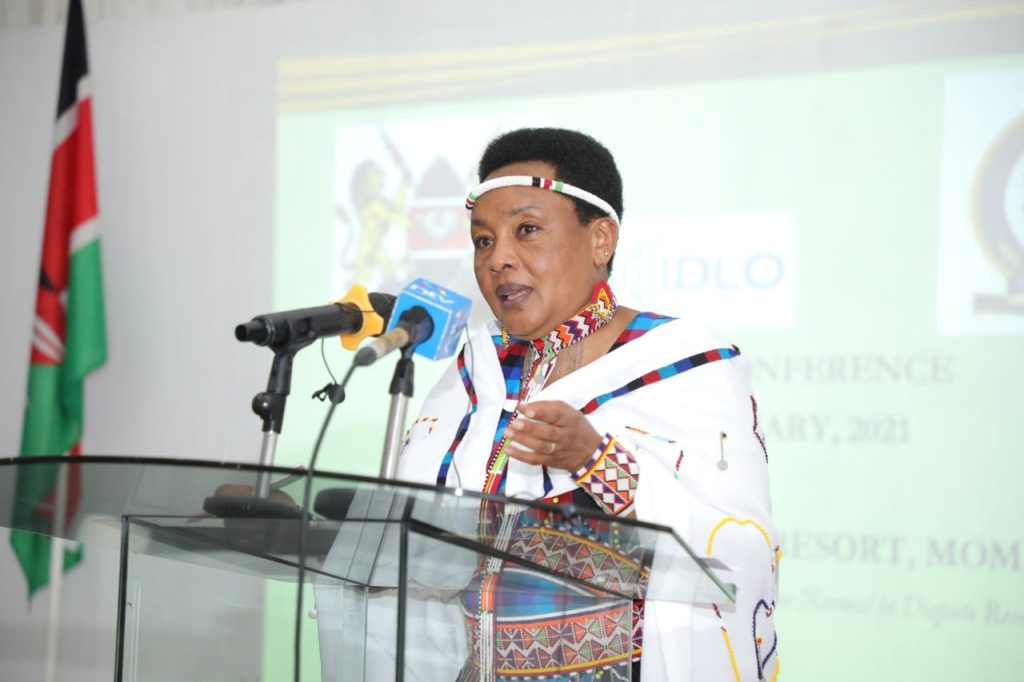
This is despite observers saying technological challenges continue to hinder the delivery of justice.
Mwilu had during the High Court Judges conference in Mombasa back in February called for the physical resumption of court cases, amidst the pandemic saying, “it was necessary in order to avert a backlog crisis and ensure fair judgements in court.”
Physical appearances in court will however be limited.
As a coping mechanism, specifically for Kenyans violating COVID rules, in the past week, the judiciary alongside the Nairobi Metropolitan Services resulted to serving offenders of the protocols public service orders.
57 Kenyans who were this past week arrested and detained at the Kilimani police station for Violating COVID-19 rules engaged in community service.
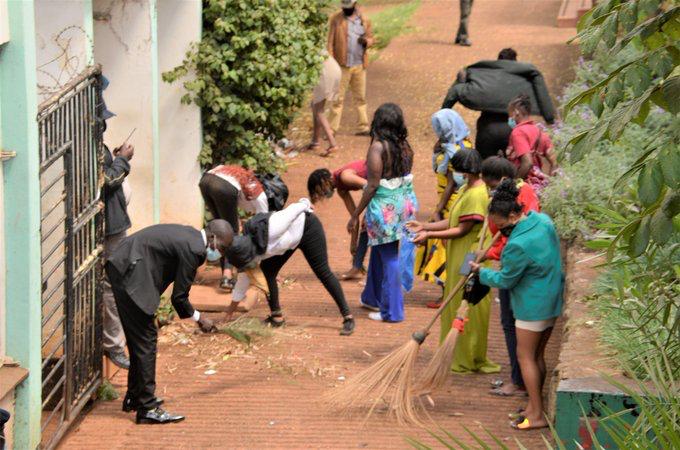
The directorate of Enforcement under the NMS delegated and oversaw that the terms of the community service were adhered to with offenders reporting to the directorate at 8am to 5pm.
-Correctional Facilities-
The spread of the corona virus in prisons was also a point of concern with authorities devising several measures to combat its spread.
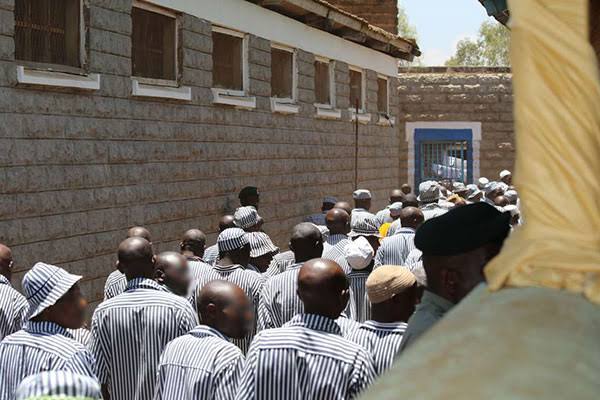
On advisory of the National Council on Administration of Justice (NCAJ) petty offenders across the country may also be released. This is expected to reduce the risk of the virus spreading in prisons.
Thousands of inmates in that category have since last year been released with the prison population reducing significantly from 48,000 to 42,000 inmates.
“Part of what of what we do is adhere to strict COVID guidelines such as limit visits to prisons and if inmates have court cases conduct virtual trials, ” Wycliffe Ogallo, Kenya Prisons Service Commissioner General told Shahidi News.
Alternatives to pre-trial detention and imprisonment is expected to be devised to decongest detention facilities as well as enhancing avenues for diversion of matters through alternative dispute resolution (ADR) and alternative justice system (AJS).
Want to send us a story? Contact Shahidi News Tel: +254115512797 (Mobile & WhatsApp)


